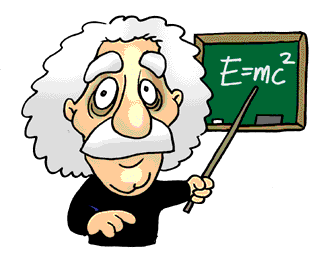Galileo Galilei Biography
Galileo Galilei - Astronomer and Scientist 1564-1642 Galileo was born in Florence, Italy in 1564 to a poor but noble family. His parents recognised their child's innate intelligence and talents
and so made sacrifices to have him educated. At his father's insistence,
Galileo studied the profitable career of medicine. At the University of
Pisa, Galileo became fascinated in a wide range of subjects. He was
also critical of many of Aristotle's teaching which had dominated
education for the past 2,000 years.
Galileo was appointed to be a mathematics professor at the university
of Pisa, but, his strident criticisms of Aristotle, left him isolated
amongst his contempories. After 3 years of persecution, he resigned and
went to the university of Padua. Here he taught maths. His entertaining
lectures attracted a large following and he was able to spend the next
18 years pursuing his interests in astronomy and mechanics.
During
this time, Galileo made important discoveries about gravity, inertia
and also developed the forerunner of the thermometer. Galileo also
worked tirelessly on the science of gnomonics (telling time by shadows)
and the laws of motion.
It was in astronomy that Galileo that became famous and also courted the opposition of the Holy Roman Catholic Church.
Galileo came to the same conclusions of Copernicus that the sun was
the centre of the universe and not the earth. By inventing the world's
first telescope, Galileo was able to make many explorations of the
universe. He found that
- Saturn had a beautiful ring of clouds.
- The moon was not flat but had mountains and craters.
- Jupiter had many moons which revolved around Jupiter rather than directly the sun.
Thus, Galileo not only had the mathematical proofs of Copernicus,
but, also new proof from the science of astronomy. However, Galileo knew
that publishing these studies would bring the disapproval of the church
authorities. The Church had already started to forbid the teachings of his teachings, especially anything that supported Copernicus.However, in 1623, a new pope, Pope Urban VIII seemed to be more
liberally minded and he allowed Galileo to publish his great works on
astronomy and supporting the works of Copernicus.
However, after publication, elements within the Church sought to
attack Galileo's position. Thus, Galileo was arrested and imprisoned for
several months. He was convicted of heresy and was forced to recant his
beliefs. He spent the remaining years of his life under house arrest at
Arceti.
Galileo had three children. He was especially close to one of his
daughters, Polissena; she took the name of Sister Maria Celeste and
entered a convent near Arceti. Despite being censured by the church, Galileo continued to make
discoveries until death overtook him in 1642. He was blind by the time
he passed away. Galileo made many important contributions to the development of scienc.


1 komentar:
Dear friend,
I am writing to you to inform that many of your viewer of the site when clicking on the picture of Galileo Galilei go to the wrong link. Here is the correct link http://moldphila.com/home/1567-moldova-europa-cept-2009-astronomy-galileo-galilei-official-maximum-card.html. You can change it.
Thanks
www.moldphila.com
Posting Komentar